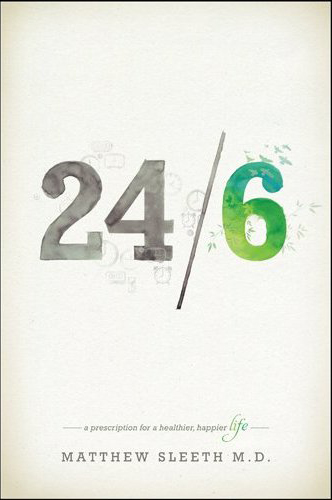 When my grandmother was a girl, Sunday was a day for taking the team of horses to her little white country church in North Dakota. Her father did the bare minimum of chores around the farm—like milking the cows before the sun came up—but all other work ceased. Even knitting was a borderline activity, since some people argued the creative aspect of it constituted work.
When my grandmother was a girl, Sunday was a day for taking the team of horses to her little white country church in North Dakota. Her father did the bare minimum of chores around the farm—like milking the cows before the sun came up—but all other work ceased. Even knitting was a borderline activity, since some people argued the creative aspect of it constituted work.
When my mom was growing up, most stores and restaurants were closed on Sundays, and on the rare occasion when her family had to go to the drugstore to pick up an emergency item, her father would apologize to the cashier for making him work on the Sabbath.
A generation later, when I was a kid, Sundays were family day at my house. We’d have brunch together after church, and then we’d go on a walk in the woods or play games together. No getting together with friends, no organized sports.
Now that I have a home of my own, I’m shocked to find how much our culture (and me with it) has changed in its attitude toward the Sabbath. Work has now infiltrated every part of life—it’s on our laptops, on our phones, at our very fingertips. While previous generations had to physically go out to the field or in to the office, work now finds us. We have to go to great lengths if we want to avoid it.
For the most part I’ve looked at God’s instructions about the setting aside a day of rest as something of an anachronism—rules that were meant for people in the Old Testament but didn’t really apply to us today. In fact, somewhere along the way I even got the idea that it was more righteous to have a strong work ethic, to be productive—even on Sundays. But the more I’ve looked at what the Bible says about the holiness of rest, the more trouble I’m having rationalizing away those commands. And the more I’m realizing, to my surprise, how much the instructions smack of delight rather than duty.
Keep the Sabbath day holy. Don’t pursue your own interests on that day, but enjoy the Sabbath and speak of it with delight as the Lord’s holy day. Honor the Sabbath in everything you do on that day. —Isaiah 58:13
Jesus said, “Come to me, all of you who are weary and carry heavy burdens, and I will give you rest.” —Matthew 11:28
I’m also recognizing that while Jesus was criticized by the religious leaders of his day for breaking the Sabbath, he wasn’t throwing out the concept altogether. When he did things that enraged the religious leaders—most often healing the blind and the lame and the deaf—he wasn’t disregarding the Sabbath; he was rejecting the legalism of the manmade rules surrounding it (see here for an example). He was getting at the heart of the day of rest—setting aside time to slow down so we can honor the Lord, catch our spiritual breath, refocus on what’s really important.
So what does a grace-based view of a day of rest look like? I’m not entirely sure, but I want to find out.
With my bent toward legalism, I’m not sure the best idea would be to make a bunch of Pharisaical rules for Sundays. And I don’t want it to be a day focused on the negative—what I can’t do. I want it to be about what I can do—what brings life and freedom and closeness with God.
So here are the two litmus-test questions I plan to use to determine if something is a worthy activity for a Sunday:
- Does it feel like work?
- Is it life-giving?
 I don’t know exactly what this adventure will look like, but I invite you to join me in reserving a weekly day of rest. I invite you to explore what it might look like for us to cease work and discover things that fill us with life and peace.
I don’t know exactly what this adventure will look like, but I invite you to join me in reserving a weekly day of rest. I invite you to explore what it might look like for us to cease work and discover things that fill us with life and peace.
I’d love to have your feedback and help as I embark on this quest.
- What do you need to turn off or stop doing to allow yourself to rest?
- What feels like true rest for you?
Recommended reading: Matthew Sleeth’s book 24/6 was instrumental for me in kick-starting this journey toward rest. I highly recommend it—it’s an easy, engaging, grace-filled read.
“Thou madest us for Thyself, and our heart is restless, until it rests in Thee.” —Augustine of Hippo


